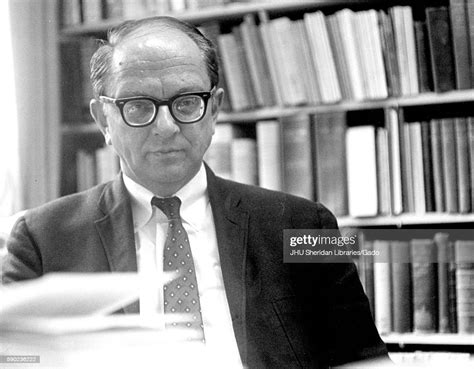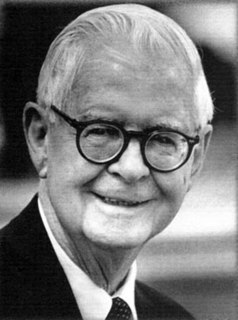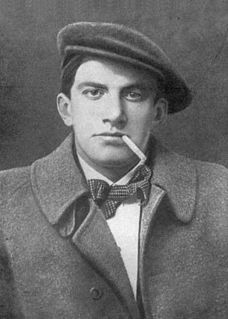A Quote by Joseph Brodsky
The real biographies of poets are like those of birds, almost identical - their data are in the way they sound. A poet's biography lies in his twists of language, in his meters, rhymes, and metaphors.
Related Quotes
One of the surest tests of the superiority or inferiority of a poet is the way in which a poet borrows. Immature poets imitate mature poets steal bad poets deface what they take and good poets make it into something better or at least something different. The good poet welds his theft into a whole of feeling which is unique utterly different than that from which it is torn the bad poet throws it into something which has no cohesion. A good poet will usually borrow from authors remote in time or alien in language or diverse in interest.
What a wee little part of a person's life are his acts and his words! His real life is led in his head, and is known to none but himself. All day long, the mill of his brain is grinding, and his thoughts, not those of other things, are his history. These are his life, and they are not written. Everyday would make a whole book of 80,000 words -- 365 books a year. Biographies are but the clothes and buttons of the man -- the biography of the man himself cannot be written.
The ideal audience the poet imagines consists of the beautiful who go to bed with him, the powerful who invite him to dinner and tell him secrets of state, and his fellow-poets. The actual audience he gets consists of myopic schoolteachers, pimply young men who eat in cafeterias, and his fellow-poets. This means, in fact, he writes for his fellow-poets.
One of the things I love about translation is it obliterates the self. When I'm trying to figure out what Tu Fu has to say, I have to kind of impersonate Tu Fu. I have to take on, if you will, his voice and his skin in English, and I have to try to get as deeply into the poem as possible. I'm not trying to make an equivalent poem in English, which can't be done because our language can't accommodate the kind of metaphors within metaphors the Chinese written language can, and often does, contain.
The poet wants to ‘say’ something. Why, then, doesn’t he say it directly and fortrightly? Why is he willing to say it only through his metaphors? Through his metaphors, he risks saying it partially and obscurely, and risks saying nothing at all. But the risk must be taken, for direct statement leads to abstraction and threatens to take us out of poetry altogether.
Poetry begins in trivial metaphors, pretty metaphors, "grace" metaphors, and goes on to the profoundest thinking that we have. Poetry provides the one permissible way of saying one thing and meaning another. People say, "Why don’t you say what you mean?" We never do that, do we, being all of us too much poets. We like to talk in parables and in hints and in indirections - whether from diffidence or some other instinct.
Formerly I believed books were made like this: a poet came, lightly opened his lips, and the inspired fool burst into song – if you please! But it seems, before they can launch a song, poets must tramp for days with callused feet, and the sluggish fish of the imagination flounders softly in the slush of the heart. And while, with twittering rhymes, they boil a broth of loves and nightingales, the tongueless street merely writhes for lack of something to shout or say





































